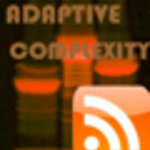
Stephen Meyer, Signature in a Cell, Part Two. The central argument of Stephen Meyer’s book, Signature in a Cell, is that coded instruction sets in DNA, just like computer code, require intelligence for their origin. Meyer calls this the best inference from the evidence, a valid argument used in science. I think this argument is a valid one. One can make the inference that the origin of information indicates intelligence.
Meyer's argument remains science because it stops short of the next step, which is to make the metaphysical inference that the “intelligent…



